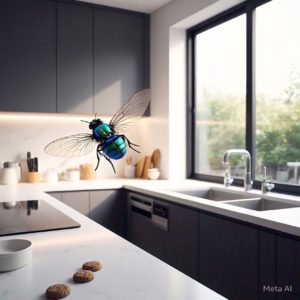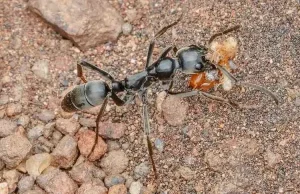In South Africa, September’s changing climate brings a shift in pest activity. Rising temperatures and humidity create ideal conditions for an increased pest presence. This article highlights the pests expected to become more prominent this September, their potential impacts, and management strategies. From mosquitoes to termites, let’s explore these creatures in the evolving South African environment.
1. Mosquitoes and Flies:
As September marks the transition from winter to spring in South Africa, the warming temperatures and increased humidity create favorable conditions for the resurgence of mosquitoes and flies. These pests thrive in moist environments, and as stagnant water becomes more common after winter rains, mosquito breeding becomes prevalent. Residents should anticipate heightened mosquito activity, especially during the evenings, and take precautionary measures such as using mosquito nets and repellents to mitigate their presence. Flies are also expected to become more bothersome, necessitating better waste management practices to reduce their attraction.
2. Ants and Termites:
The warmer climate encourages these pests to venture out in search of food and new nesting sites. Ants, particularly invasive species, might infiltrate homes in pursuit of sustenance. Meanwhile, termites, notorious for causing structural damage, start swarming as they establish new colonies. Regular inspections of buildings and the immediate addressing of any infestations are crucial to preventing significant damage to wooden structures.
3. Cockroaches and Spiders:
As temperatures gradually rise during September, cockroaches and spiders become more prominent. Cockroaches are known for thriving in warm and humid conditions and finding their way into homes and commercial spaces. Proper sanitation and sealing of entry points are essential to deter their presence. Spiders, on the other hand, become more active as they feed on other insects that also flourish in the changing climate. Spiders are one of nature’s best pest controllers and should never be killed. If you encounter a spider in your home, the smart choice will be to stay calm and consider letting them live.
4.Rodents:
The onset of spring in September prompts rodents like rats and mice to reproduce more rapidly, seeking shelter and food sources. These pests can cause damage to property and spread diseases. As vegetation regrows and food becomes more abundant, rodents are drawn closer to human habitats. Effective waste management, sealing entry points, and setting traps are recommended strategies to control their populations and prevent infestations.
In summary, the South African climate in September welcomes a variety of pests due to increased temperatures and humidity. Mosquitoes, flies, ants, termites, cockroaches, spiders, and rodents are among the pests that may become more problematic during this period.
By implementing proactive pest management measures, residents can minimize the impact of these pests on their living spaces and enjoy a more comfortable transition into the spring season.
At SMARTSENZ®IPM, we improve the environment for all living things by encouraging sustainable pest management techniques, emphasizing the delicate balance between pest control effectiveness and ecological well-being.
Are you ready to take the next eco-conscious decision for your business?
If you want to take the first step in becoming more eco-conscious in your business, or find out more about eco-conscious pest management, feel free to contact us or click here to get an obligation free site survey for your home or business.





